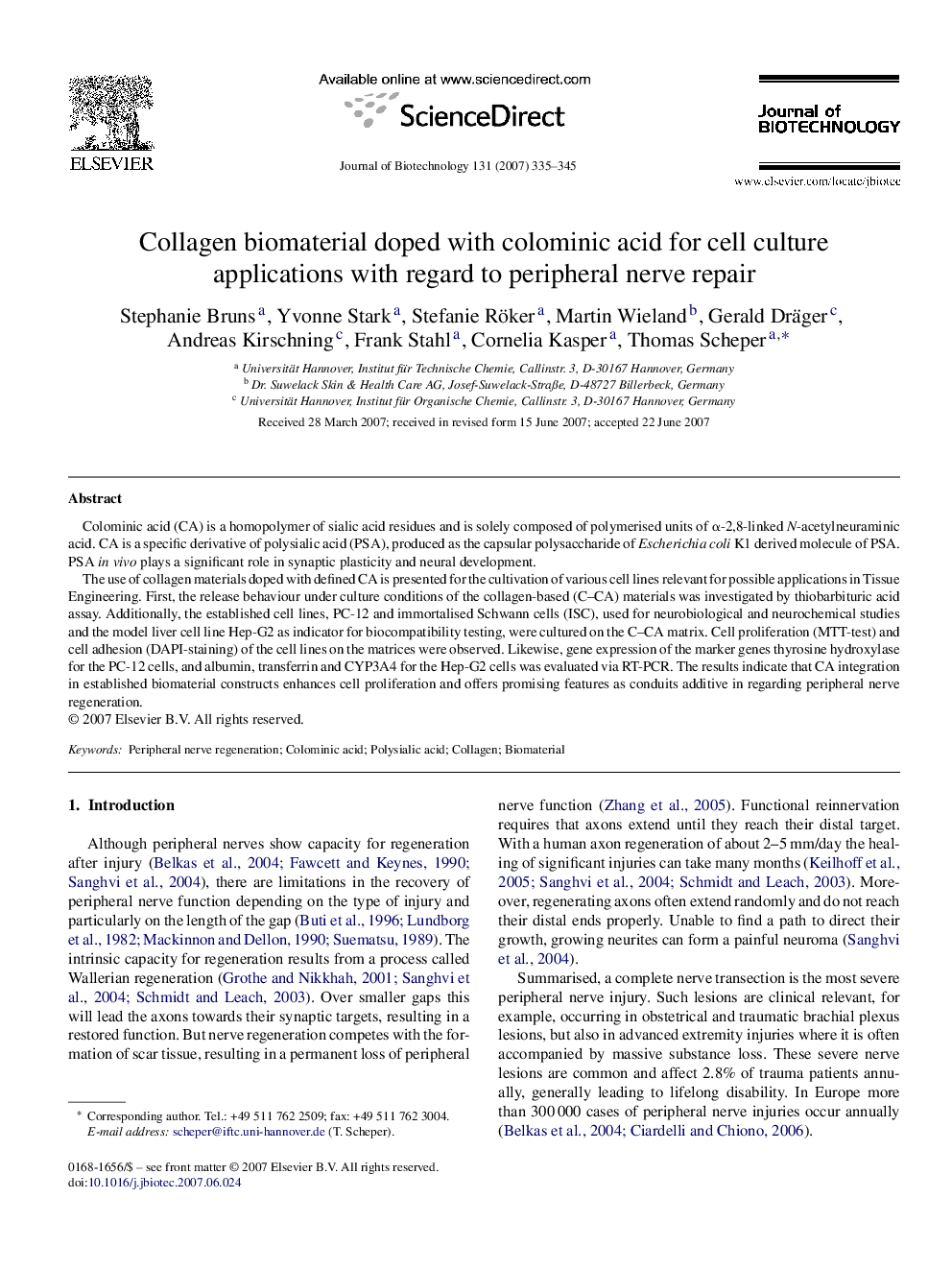| Article ID | Journal | Published Year | Pages | File Type |
|---|---|---|---|---|
| 25181 | Journal of Biotechnology | 2007 | 11 Pages |
Colominic acid (CA) is a homopolymer of sialic acid residues and is solely composed of polymerised units of α-2,8-linked N-acetylneuraminic acid. CA is a specific derivative of polysialic acid (PSA), produced as the capsular polysaccharide of Escherichia coli K1 derived molecule of PSA. PSA in vivo plays a significant role in synaptic plasticity and neural development.The use of collagen materials doped with defined CA is presented for the cultivation of various cell lines relevant for possible applications in Tissue Engineering. First, the release behaviour under culture conditions of the collagen-based (C–CA) materials was investigated by thiobarbituric acid assay. Additionally, the established cell lines, PC-12 and immortalised Schwann cells (ISC), used for neurobiological and neurochemical studies and the model liver cell line Hep-G2 as indicator for biocompatibility testing, were cultured on the C–CA matrix. Cell proliferation (MTT-test) and cell adhesion (DAPI-staining) of the cell lines on the matrices were observed. Likewise, gene expression of the marker genes thyrosine hydroxylase for the PC-12 cells, and albumin, transferrin and CYP3A4 for the Hep-G2 cells was evaluated via RT-PCR. The results indicate that CA integration in established biomaterial constructs enhances cell proliferation and offers promising features as conduits additive in regarding peripheral nerve regeneration.
